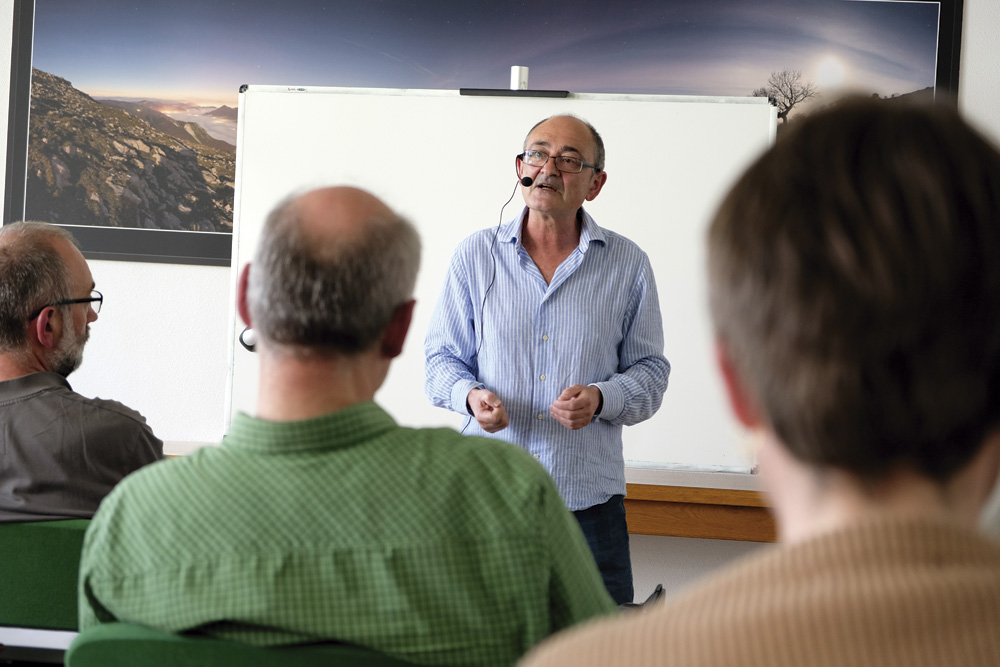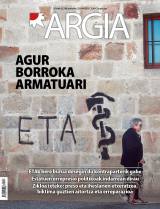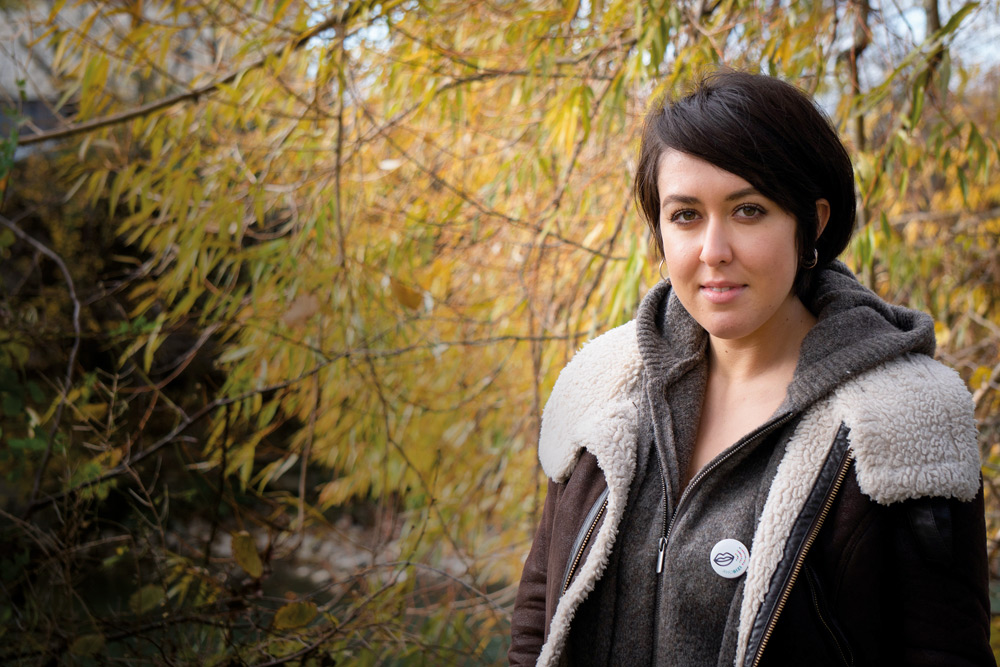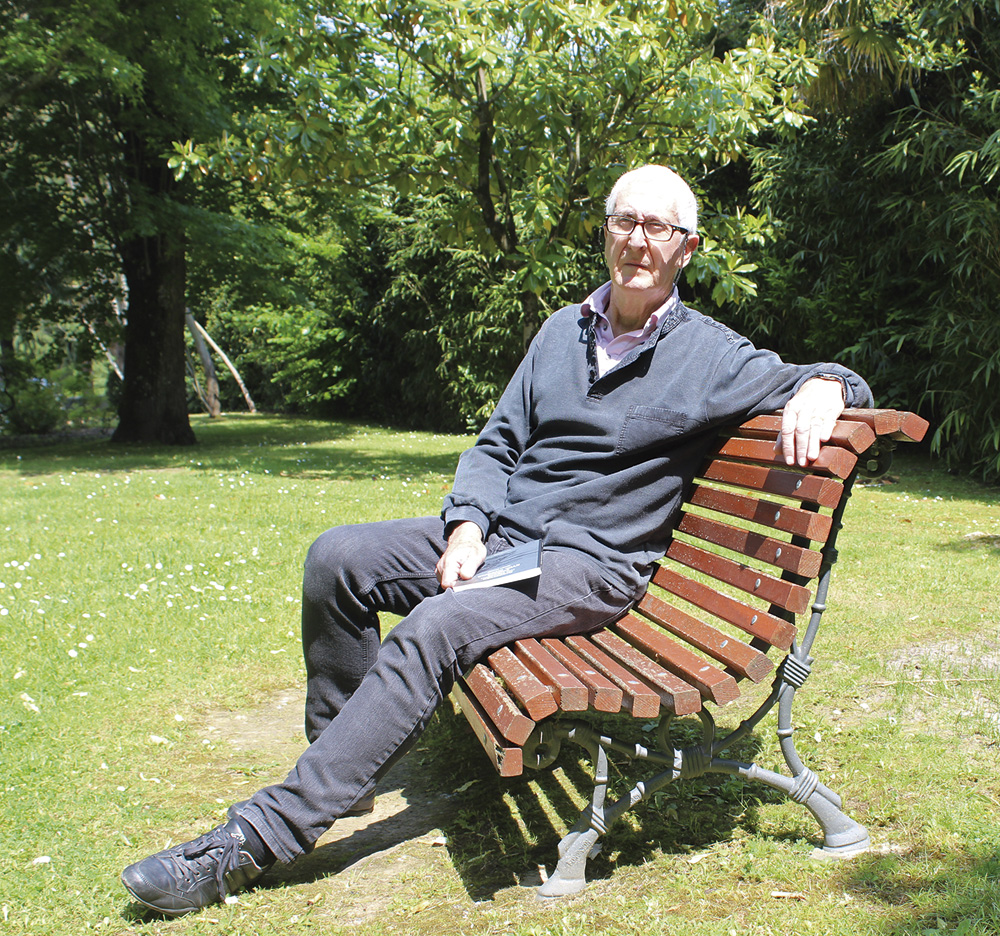In search of the Basque Country batua closest to the local language
- The use of unified Euskera and local dialects has long been a debate: when and how to use one, when and how to use the other. In order to find answers to these questions and give a boost to Euskera in the region, the Service of Euskera of the Sakana Commonwealth has organized the Sakana-Batua Days. The two training sessions were held in April in Lakuntza, under the direction of linguist Koldo Zuazo.

“I am a professor at the Faculty of Philology and I am surprised to see how every year young students come to presentations saying that they do not want to use the Basque Country batua, that they feel artificial when using the batua.” The linguist Koldo Zuazo set as an example one of the main criticisms of Euskera batua the phrase he usually listens to at university. The Basque artificial batua as a laboratory language and the natural and authentic dialects. The professor of the UPV/EHU used the first session of the conference on the Basque batua in Sakana to banish the myths he considered erroneous and dangerous and to underline the importance of the Basque batua.
Among the public, there were people from different towns and areas of Sakana: Professors of AEK, ikastolas and schools, people who work around various Basque dialects, trade unionists, members of municipalities and communities, retirees… The staff of the Basque Service of the Commonwealth state that there is interest in the subject. “The course has been open to everyone, but we have made a special diffusion in the educational centers of Sakana, because through teachers we want to reach future generations,” they explained.
For the Basque Country, not against the dialects
The linguist wanted to make clear his willingness to favor the unified Basque in the first session of the conference, and stressed the role that the ikastolas played in the creation of the standard Basque. “I think the creation of the ikastolas was one of the best things we Basques have done in our history. With the creation of the ikastolas, we began to know and analyze our history, literature, geography and language,” he said.
If the ikastolas have been the largest creation of the Euskaldunes, the Euskera batua is the second most important invention for Zuazo. Why? Because it has made all Euskaldunes understand each other, because it gives the opportunity to learn Euskera, because it has introduced our language into the path of normalization, because it has united and united the seven territories of Euskal Herria, and because it has made Euskera a language with its own grammar and vocabulary.
The researcher does not question at any time the richness of the dialects, but at the same time believes that it is not advisable to mystify them, since he considers that one of the main reasons that the dialects are so different is the division that Euskal Herria has experienced in history. “Dialects are treasures, but we have to be clear about where they come from. The origin of the Basque dialects is not good. I believe that if the seven countries had been united, if we had organized teaching and administration, there would not be so many dialects,” he says.
What the hell is this?
At the second session of the training, the linguist addressed the issue of local treaties. Unified versus dialects away from antagonism, Zuazo believes that everyone is an integral part of the language, and is convinced that for the Basque country to be strong it is necessary that all the elements be strong. That's why he's teaching local cats today here, tomorrow there.
Although Euskera batua is a good tool, the linguist considers that the use given to it on many occasions is bad. The question she asked the participants in the conference was as follows: “What do you think the same Basque shows in Elgeta, Lapubs of Labarca and Tudela? Or in Arbizu and Ondarroa? Shouldn’t the Basque of each place be taken into account and whether or not it is an Euskaldun environment?” He has the clear answer: yes. And he set an example to explain this misuse. He asked Mungia’s five-year-old grandson “How are you doing?” and he answered “You don’t say how you are doing, how you have to say,” taught by the professor.
The Nordic people regard researchers as models for this teaching of language. In these countries, at around 4 years old, boys and girls practice in the local language at school, and as they learn to read and write, they begin to learn the full words. “The child goes from orality to step-by-step writing, from the familiar language to the cultured language, but always from the language of the people,” he explained. He believes that similar forms should also be sought in Basque.
After all, the proposal is not to learn two different things: the standard has not been united on the one hand and the standard on the other. We believe that we should have a single addition and that addition has to be locally based. “If we did, people would learn and more easily accept the batua. This artificial argument happens many times because we use a very remote union, adding up very ‘rare’ or technical often generates rejection,” he says.
In the Sakana, ‘I’ve thrown away’ and ‘fan’
In Urdiain, Zuazo spent three years learning Basque. It had, therefore, a rather close relationship with Sakana's language from before. For example, it is considered appropriate to use the words ‘boté’ or ‘fan’. However, the problem is that many times we do not even know what Euskera batua is, and that we tend to describe what is OK as bad. “Who forbids saying ‘I have cast’? You won't find documents from Euskaltzaindia that say you have to rule out this or that word. This regulation has never been given.”
In the local administration, in the municipalities, in the schools, in the notes of the associations and local entities, Zuazo defends the use of the local batua in all of them, not only in orality, but also in the written expression. “In Ipar Euskal Herria we read ‘wine’ or ‘gasna’ everywhere. See here, in Urbasa or in Burunda, where you see the word ‘gaztaia’. It is important not only to listen to the local Basque, but to read, to see.”
In the same vein, they have spoken from the Euskera Service, asked about the origin of the days: “In the Basque Country we use the same unified Basque in all places and tasks. It would be more appropriate to use words, expressions and characteristics of oral and written activities directed to language speakers. We want to give Sakana’s batú the color and vitality of his words, so that we feel more to us.”
Language is a broad thing and there are many languages. We can dialect with people around us, the Basque batua with people farther away, we can do Basque with friends and the Basque cult in the formal areas. The question is: What is good language? “Well, they are all good languages. We will have to use each of them in their area, the important thing is to know.”
The Basque country has multiple facets in the field of the situation or status (in the use of the street, in the home, in the administration, in the literature, in the media, in the situation of the dialects, in the degree of learning of the immigrants...) and in the field of... [+]























